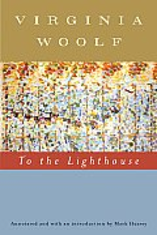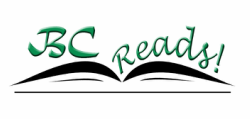
Author: Virginia Woolf
Genre: Fiction
# pages: 312
Date published: 1927 (Republished in 2005)
5-star rating: 5 stars
Would you recommend it: Yes
For readers who crave action-based plots and traditional narrative progression, To the Lighthouse will prove to be a frustrating and fruitless reading endeavor, as the entire novel revolves around one action: going to the lighthouse. For the open-minded reader, however, the novel is an overwhelmingly profound and rewarding literary experience. What the plot lacks in physical action, it makes up for in emotional and psychological movement, as Woolf uses a free indirect discourse to seamlessly weave in and out of her characters’ psyches.
Set at Mr. and Mrs. Ramsay’s summer home, To the Lighthouse fuses natural and psychological elements to explore how exterior and interior spaces interact. Mrs. Ramsay is the novel’s life force, as her beauty and natural authority charm the many visitors who frequent the beach house. Mr. Ramsay is decidedly less vivacious, and his preoccupation with academic and paternal failure leads him to constantly (and often annoyingly) crave sympathy from his wife and other female characters. To say that Mrs. Ramsay is solely a dominant and lively housewife would unfairly reduce her intricate character, and the same applies to Mr. Ramsay and his gloomy necessitousness. Both Mr. and Mrs. Ramsay fascinate Lily Briscoe, a visiting artist who exemplifies the frustration that arises from violently opposing emotions that constantly fight to take precedence. Does she love the Ramsays or despise them? Is art the bane of her existence, or is it her true passion?
Readers will find that the novel is full of these paradoxes—it is almost impossible to concretely define characters. That liminality makes the narrative dynamic (yes, dynamic) and realistic, because Woolf does not shy away from the volatile and often irrational emotions that shape human experience.
Woolf finds the pulse of the philosophical, psychological, and artistic Modernist movements that emerged after World War I. While the novel does not explicitly focus on war, it does grapple with the daunting existential questions that resulted from loss and disillusionment. The novel’s three sections act as time markers, with the first section representing pre-modern life and the last exemplifying the anxiety and uncertainty of post-war existence. Characters also convey the shift from the “old way” to modernity. Mrs. Ramsay, the traditional homemaker, embodies Victorian creation; Lily, on the other hand, tries to figure out her role as a different kind of artist: the modern painter.
To the Lighthouse asks readers what remains after devastating loss. How does one go on after dependability and reliability perish? What is creation, and how long will it endure? With her lyricism, Woolf astutely articulates seemingly ineffable emotions, and her representation of the complexities of the human condition is a beautiful depiction of everyday trials and triumphs in the midst of global tragedy. A novel about the numerous forms of creation, artistic and otherwise, To the Lighthouse is a literary masterpiece.
Review by Lauren Bly, A&S '15

 RSS Feed
RSS Feed
